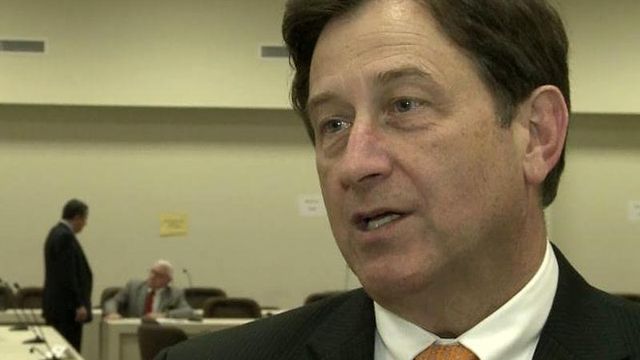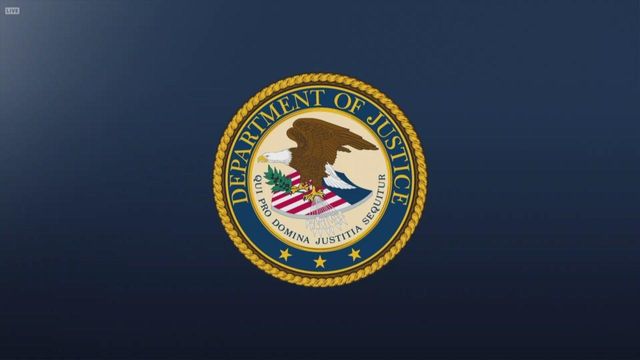Fingerpointing, but no solutions for Medicaid shortfall
State lawmakers overseeing Health and Human Services met all day Tuesday in Raleigh. But the $139 million Medicaid cash shortfall didn't even make their agenda.
State Health and Human Services Secretary Lanier Cansler says the program, which serves more than a million people in North Carolina, will not be able to achieve more than $350 million in cuts mandated by the state budget under its current operations.
Cansler says the budget offers him only one option to accomplish the required savings: deep cuts to optional services and to the reimbursement rates the state pays Medicaid providers.
Republican leaders say those cuts won't happen.
Even if the state were to try to make those cuts, budget co-chairman Rep. Nelson Dollar (R-Wake) said Tuesday, the federal government would not approve them. "It's a practical impossibility," he said. "I think that maybe some people who've been worried about that should not be."
When committee Democrats asked why the shortfall wasn't on the agenda, Dollar said it's up to Governor Bev Perdue and Secretary Cansler to find the money to cover the problem.
"We've extended a hand to the governor's office to work with her, and have gotten a lot of politics in return," Dollar said.
Advocates say they're less interested in the politics of the battle than its potential casualties: Medicaid enrollees worried about losing vital services.
"This is one of the most critical issues facing our state right now, and it's not on the agenda," said Mary Bethel with AARP North Carolina. She waited hours for the chance to deliver a three-minute statement on behalf of two dozen groups representing Medicaid recipients and providers.
Bethel says the state's most vulnerable people are waiting for a solution. "Folks right now are being caught in the middle between divergent views on how to handle this," she said. "It’s time that we bite that bullet and come together and do the right thing."
Bethel says Dollar's statements on service cuts made her hopeful. "But we've been hopeful before," she added.
Cansler was similarly wary. "Medicaid bills have got to be paid," he said, "and sooner or later, someone's gonna have to figure out where the dollars are gonna come from to pay those bills."
Cansler said it's unlikely that he and Perdue can find the money to cover the cuts elsewhere. "With all the cuts over the last few years, we don't have that much money to move around," he said. "Which means the money's going to have to come from somewhere outside of Health and Human Services. Which is going to take some legislative assistance."
That seemed less likely after lawmakers were told about problems with the state's contract to rebuild its Medicaid billing system. The 2008 contract with contractor CSC has ballooned from $287 million in 2008 to $495 million today, in large part because it's running almost two years behind schedule. All but about 10% of the total is paid with federal dollars.
According to legislative staff, a soon-to-be-released audit will show slow response times and poor oversight by HHS is partly to blame for the delay.
House Speaker Thom Tillis said the report raises "serious concerns about fiscal management" in HHS.
"I believe it is important that the legislature be very cautious when considering providing more funds to a department that has problems managing the resources they already have," Tillis said in a written statement. "Every dollar that is wasted through mismanagement is a dollar less that can be spent on critical services provided to the citizens of North Carolina."
But Cansler said reports of mismanagement are overstated. He says delays in the project are mostly due to changes in federal rules, particularly those related to healthcare reform.
The Medicaid program handles 8 million claims a month from some 70,000 providers. Changing it, Cansler says, is like "trying to build an airplane in mid-air."
"To say it’s management or to say it’s the vendor or to say it’s the state – you know, everybody could be improved, there’s no question about it. But the fact of the matter is – and I think this is one of the issues the legislature doesn’t understand – this is the most complex system we’ve ever tried to build, and its just not gonna happen easy," Cansler said.
DHHS spokeswoman Renee McCoy was more blunt: "The Republican-controlled General Assembly is trying to divert attention away from the Medicaid budget and the potential of slashing funding for children, seniors and the disability community,” she said.
Perdue's office took the same approach, noting that except in budget emergencies, the governor doesn't have the power to take money lawmakers haven't appropriated.
"The Governor appreciates Rep. Dollar attempting to give her new authority, but the budget he helped write doesn't do that," said Perdue press secretary Chris Mackey. "What Rep. Dollar failed to say is that he and the rest of the Republican leadership passed an extreme budget that shortchanged children and seniors, and now the Republicans are asking the Governor to bail them out."
It'll likely be 2012 before any solution is found. The final HHS budget oversight meeting of the year, scheduled for next week, has been cancelled.











